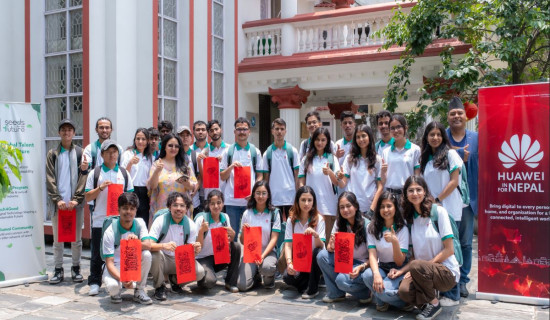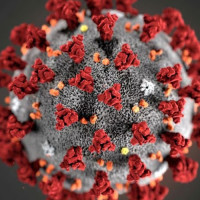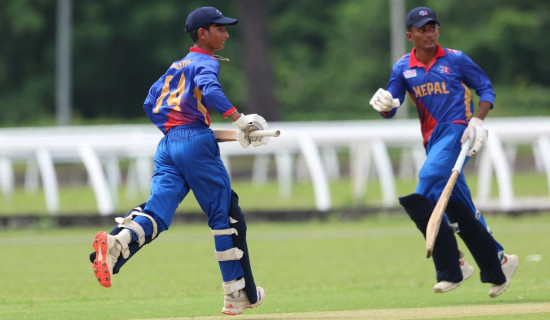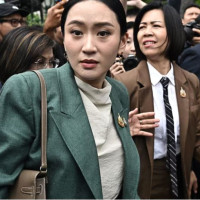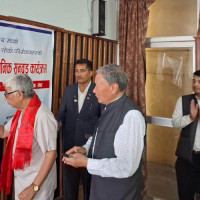- Wednesday, 2 July 2025
Putin, Xi Showcase Rapport
Three days before the May 7-10 celebrations of the 80th anniversary of Nazi Germany’s World War II defeat in 1945, Russian President Vladimir Putin described Sino-Russian relations as “truly strategic in nature, deep-seated… Our national interests coincide.”
That should sum up the significantly deepening ties between the two superpower neighbours, which they emphasise as “comprehensive partnership” and “strategic” bonds. In the course of World War II, 27 million Soviet people lost their lives. Chinese President Xi Jinping attended last week’s event that Russia hosted. About 30 foreign heads of state and government joined the celebrations marking Nazi Germany’s surrender.
Russia bore the brunt of Nazi aggression in World War II. Its losses of lives were far higher than those of any other nation. The cold war causes and excuses were not big when compared with the potential consequences they could have inflicted if things had gone wrong. They were playing with fire. Economic profits and political dominance were the causes. The agenda was laid out accordingly, though the narrative was at times accelerated by lies. Major Western powers like France, the United Kingdom and the United States did not join the grand arrangements Putin had made. This was expected in the background of the Ukraine war since February 2022.
Reluctant restraint
The Ukraine war might not have inhibited the US President Donald Trump, who has blamed his predecessor, Joe Biden, for the debacle in Europe. He would have ignored the International Criminal Court warrant against Putin, given that the US is not committed to the Hague-headquartered agency that has, in recent times, come under a cloud of criticisms and controversies over the agency’s efficiency and consistency. The US and Russia have not signed the ICC statute. They issued threats to ICC officials over the agency’s activities that Washington and Moscow considered detrimental to their security interests.
Trump might be prepared to ignore the ICC directive or critics at home regarding a meeting with his Russian counterpart, but he is not yet ready to generate bad blood in an overwhelming majority of the European Union. France, Germany and the UK, which have exited the EU, have backed Ukraine against Russian military intervention. Even as his “reciprocal trade tariff” policies have incited widespread despair and condemnation in many countries, Trump’s travel to Russia at this juncture would have added fuel to the sensitivities of the closest of American allies in Europe.
Among other foreign leaders who participated in Putin’s event were Belarusian President Aleksander Lukashenko, Serbian President Aleksander Vucic, Brazilian President Luiz Inacio Lula de Silva, Venezuelan President Nicolas Maduro and Slovakia’s Prime Minister Robert Fico. Their presence signified a token but meaningful representation from Europe and Latin America.
President Volodymyr Zelenskyy had rejected Putin’s four-day unilateral ceasefire, sticking to his demand for a 30-day ceasefire. In an angry reaction, the Ukrainian drones hit Moscow but the Russians shot down a couple of hundred of them, a few of them near Moscow but without causing any serious damage or casualties. It would be surprising if Putin does not direct a retaliatory response soon.
Xi and Putin had already come closer by the time Russian troops invaded Ukraine, which had become independent after the world’s first communist state, of Soviet Union, disintegrated in 1991. Putin and Xi had claimed a “no-limits” bilateral partnership not long before the outbreak of the Ukraine conflict. Beijing and Moscow interpreted the speed with which the US issued comprehensive sanctions on Russian leaders and their associates, including relatives and personal friends, as desperate efforts at ensuring US-led Western dominance. Free trade and competition were seen as tolerable only so long as a move did not threaten overtaking Western leadership.
Their rapport makes the two leaders most comfortable with each other, which has never been recorded such mutual understanding and respect since the Soviet Union became the world’s first communist regime in 1917, toward the end of the First World War and China installed communist rule in 1949.
An anti-communist to the hilt, Winston Churchill, when back as UK’s prime minister in the 1950s, met with US President Harry Truman. He spoke of an “Iron Curtain” having descended on Europe. The American press went gaga over the catchphrase. The US did not agree to an international authority to be entrusted with the task of monitoring nuclear weapons and the non-proliferation campaign, as it would have had an effective restraining power on the use of or brandishing of nuclear weapons.
In April, Russians who fled home at the start of the war were reportedly returning home. The big gains that Putin’s troops achieved in the past couple of months might have made them realise that conscription would not be invoked much anymore.
Perceived threat
The once venerable European industries are now vulnerable to cheaper products from China. The US monitors how China’s nuclear expansion and continuous intensification of technological sophistication have added to Russia’s relief. Washington considers Beijing a bigger threat to its interests than does Russia. A recent US intelligence report, which China describes as “biased” and “exaggerating”, expresses concern over growing Chinese cooperation with Russia, Iran and North Korea. The report worries over the communist country’s “most comprehensive and robust military threat” to American national security.
The meeting in Russia last weekend was a stunning, stellar occasion for leaders of China, Russia and their closest allies, whose running competition-created feud with the West is no secret. It was an opportunity to showcase to allies and opponents their visible bonding. The race is for the traditional powers in the West to stem erosion in their global clout over trade, industry and ideological tussle.
The Putin-Xi camaraderie deepens because of the compulsions the new century tosses up. They are not prepared to kowtow to extraneous forces’ desires in trade and global influence. Geo-politics favours the two neighbours that share a land border of more than 4,200 km. As the world prepares for new power equations and rewriting of the rule book, the on-going superpower struggle amidst assertive nations in Africa and elsewhere will have its share of vicissitudes but the old will have to give in to the new.
(Professor Kharel specialises in political communication.)



